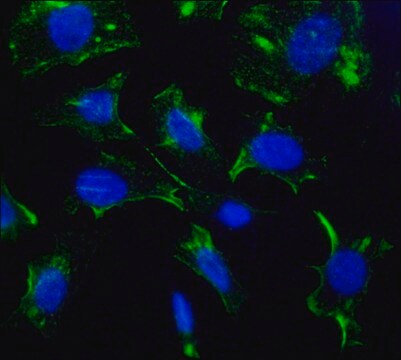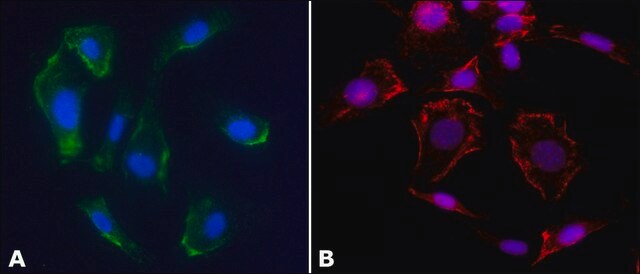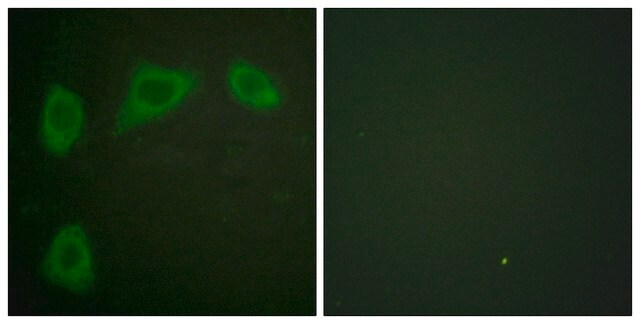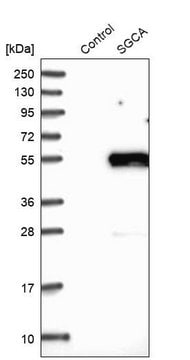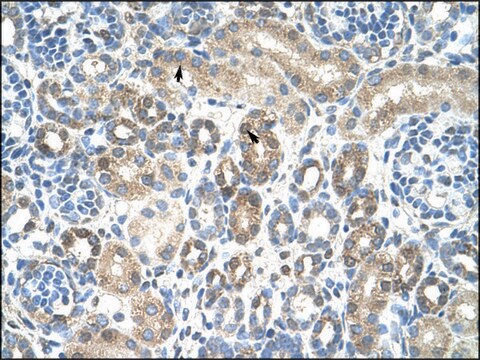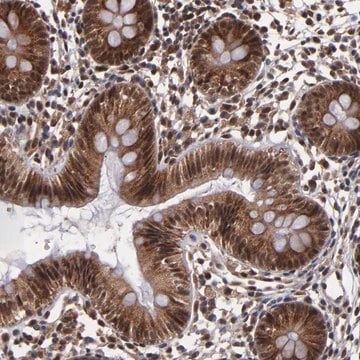C4490
Anti-Caveolin-1 antibody produced in rabbit
affinity isolated antibody, buffered aqueous solution
Sinónimos:
Anti-Caveolin-1, Anti-VIP21
About This Item
Productos recomendados
biological source
rabbit
Quality Level
conjugate
unconjugated
antibody form
affinity isolated antibody
antibody product type
primary antibodies
clone
polyclonal
form
buffered aqueous solution
mol wt
antigen 22 kDa
species reactivity
human, rat, mouse
technique(s)
indirect immunofluorescence: 4-8 μg/mL using HUVEC cell line
indirect immunofluorescence: suitable
western blot: 1-2 μg/mL using whole cell extract of the human endothelial ECV304 cell line and the mouse fibroblast NIH3T3 cell line
UniProt accession no.
shipped in
dry ice
storage temp.
−20°C
target post-translational modification
unmodified
Gene Information
human ... CAV1(857)
mouse ... Cav1(12389)
rat ... Cav1(25404)
¿Está buscando productos similares? Visita Guía de comparación de productos
General description
Specificity
Immunogen
Application
- immunoblotting
- immunofluorescence
- immunohistochemistry
Biochem/physiol Actions
Physical form
Disclaimer
¿No encuentra el producto adecuado?
Pruebe nuestro Herramienta de selección de productos.
Optional
related product
Storage Class
12 - Non Combustible Liquids
wgk_germany
nwg
flash_point_f
Not applicable
flash_point_c
Not applicable
Certificados de análisis (COA)
Busque Certificados de análisis (COA) introduciendo el número de lote del producto. Los números de lote se encuentran en la etiqueta del producto después de las palabras «Lot» o «Batch»
¿Ya tiene este producto?
Encuentre la documentación para los productos que ha comprado recientemente en la Biblioteca de documentos.
Nuestro equipo de científicos tiene experiencia en todas las áreas de investigación: Ciencias de la vida, Ciencia de los materiales, Síntesis química, Cromatografía, Analítica y muchas otras.
Póngase en contacto con el Servicio técnico